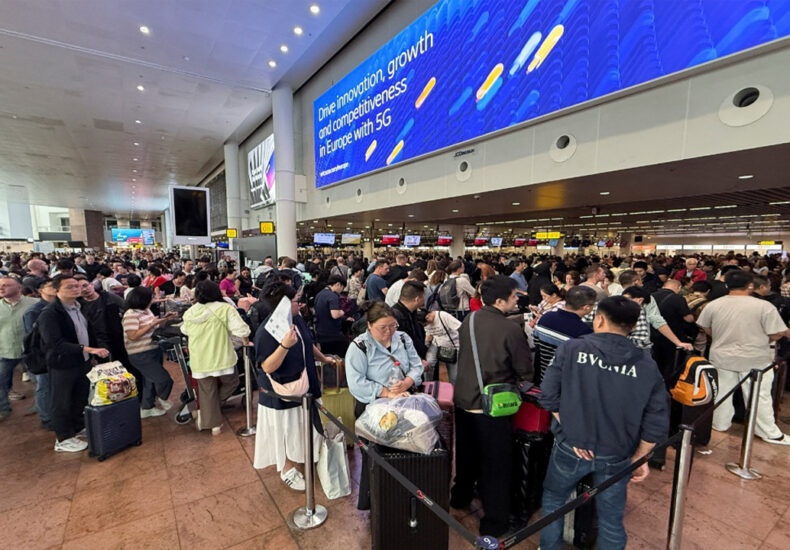
European Airports Face Cyberattack, Flights Cancelled and Travelers Stranded
Fundacion Rapala – A large-scale cyberattack hit several major European airports, including Brussels, Berlin, and London Heathrow, on September 20. The attack crippled check-in systems and forced airlines to cancel or delay dozens of flights. Thousands of passengers faced long waits and uncertainty. Dublin and Cork airports in Ireland also reported minor impacts, calling the disruption a “software issue across Europe.”
Impact on Passenger Systems
Eurocontrol, Europe’s air traffic regulator, confirmed the issue affected IT systems handling passenger services. At Brussels Airport, at least 10 flights were cancelled while 17 others faced delays of more than an hour. Collins Aerospace, the system provider, admitted the cyberattack disrupted its MUSE platform, which manages electronic check-in and baggage processing.
Ripple Effects Across Europe
The attack spread quickly across the network. Airlines were told to cancel half of their Brussels flights between Saturday morning and early Monday. Passengers at the airport faced long queues while flight boards displayed wave after wave of delays. At London Heathrow, the busiest airport in Europe, Collins Aerospace systems also malfunctioned, slowing down check-in and boarding.
Berlin and Other Airports Affected
Berlin Airport issued a warning about longer waiting times due to the same technical failure. The problem showed how dependent airports have become on one provider. A single disruption can paralyze multiple hubs at once.
Collins Aerospace Response
Collins Aerospace, a subsidiary of U.S. defense and aerospace giant RTX (formerly Raytheon), confirmed the cyberattack. The company said teams were working around the clock to restore service. Collins Aerospace specializes in aviation data and digital processing, and its reach covers more than 170 airports worldwide.
Rising Cybersecurity Threats in Aviation
Cyberattacks on aviation have grown sharply in recent years. Airports in Japan, Germany, and now across Europe have all suffered major disruptions. Aviation expert Anita Mendiratta, an advisor to the UN World Tourism Organization, explained that it is difficult to trace the attackers. She stressed that the crisis came from software vulnerabilities, not a direct attack on the airports themselves.
600% Increase in Attacks Reported
A report from French aerospace firm Thales, published in June 2025, revealed a 600 percent rise in cyberattacks on aviation between 2024 and 2025. The study warned that airlines, airports, navigation systems, and suppliers remain vulnerable. Because of its strategic and economic importance, the aviation sector has become a prime target for hackers.